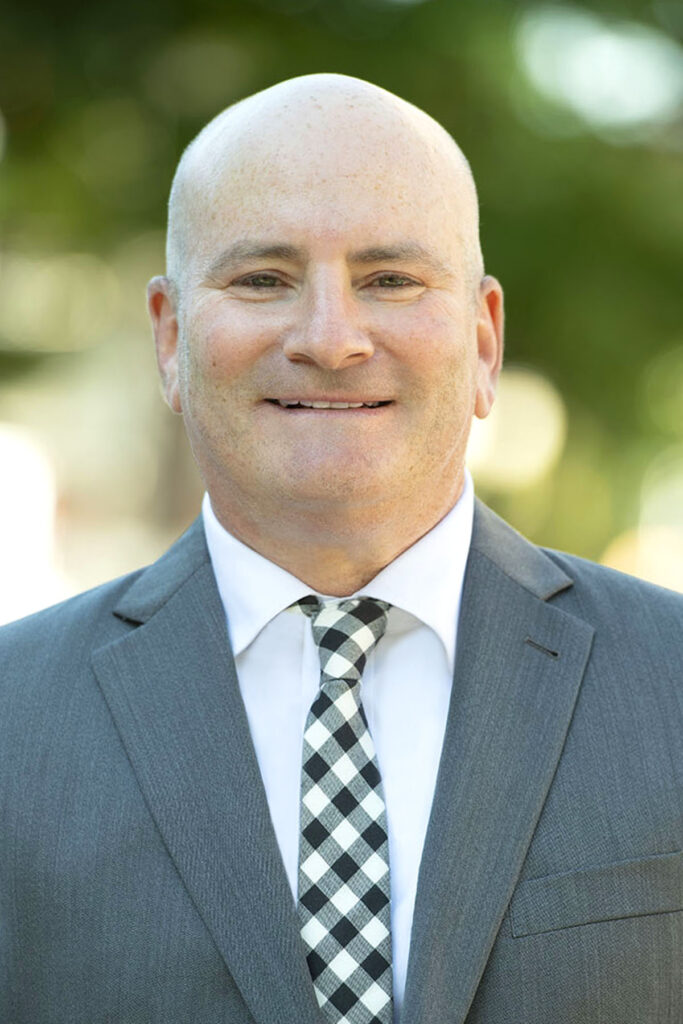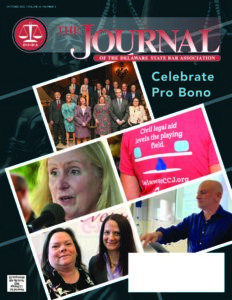At the founding of the Legal Aid Society in Delaware in 1946, Collins J. Seitz said: “In the administration of justice, we are our brothers’ keepers.”
80 years later, that exhortation could not feel more relevant.
We are living in a time when kindness and empathy are too often dismissed as weaknesses and liabilities, rather than as strengths and assets that help ensure we live in a fair and just society.
In her book In Search of Our Mothers’ Gardens, Alice Walker implores people working for social change to stay proximate to those they are serving. She writes: “The real revolutionary is always concerned with the least glamorous stuff…With raising a reading level from second grade to third…With helping [people] fill out food-stamp forms — for they must eat, revolution or not.”
At Legal Aid, we are doing the unglamorous stuff. Unglamorous in that it is messy, difficult, and the rewards are not pecuniary. There is often no external validation and it rarely makes the headlines.
But it is so important. And it changes lives.
We are there when a family is about to lose their home, painstakingly reviewing the landlord’s books to make sense of what was paid and what is owed and showing the judge why the family should not be evicted, helping them avoid homelessness.
We are there when a survivor of domestic violence needs to escape their abuser, ensuring they can obtain a Protection from Abuse Order, get custody of their children, and receive child support so they can achieve safety and independence away from the abuser.
We are there when a disabled veteran needs help cutting through the bureaucratic red tape and making sure their SSI and Medicaid benefits are not wrongfully terminated or cut so they can get the health care and medication they need to survive.
As we are facing a government shutdown that threatens to suspend food benefits for more than 100,000 of our Delaware neighbors, including many of legal aid’s clients, we can’t ignore the hunger and damage that results. And myths proliferate about who these SNAP recipients are. About half of food stamp recipients are part of working households. Of the half that don’t work, most are over 65, or caregivers, or people with disabilities. Children comprise 40% of SNAP participants.
We provide food stamps to over 40 million people in this country not because they have failed, but because our systems have, by not providing enough jobs that pay a living wage, and inadequately supporting the elderly, the disabled, and the caregivers.
As the opening paragraph of a class action complaint just filed this week in California says:
“Food or rent. Food or medicine. Food or transportation. Food for me or food for my children. These are the real-life choices that one in eight people in the United States are now forced to make daily while their SNAP benefits are not being funded.”
We are lucky in Delaware to have a Governor whose core values include empathy and kindness. He is not letting Delaware’s poorest go hungry. He is ensuring that state funds are used for food benefits this month. And we are lucky to have representatives in Washington who are staunch champions, with our Congressional delegation doing what they can to protect and advocate for our clients and our organizations.
In a 1962 address, then-Attorney General Robert F. Kennedy said: “The glory of justice and the majesty of law are created not just by the Constitution – nor by the courts – nor by the officers of the law – nor by the lawyers – but by the men and women who constitute our society – who are the protectors of the law as they are themselves protected by the law.”
Justice is our collective responsibility, and all of you gathered here tonight are those protectors, whether you are directly involved in the legal system or not.
We are lucky to have some of the best protectors we could ask for here in Delaware, from our legislative champions, to the Courts, to our fellow members of the bar and friends in the broader community who support legal aid and our clients in so many ways.
Whether you helped to pass the legislation that now guarantees a Right to Representation for low-income families facing eviction, or that ensures parents receive the highest quality representation in child welfare proceedings; whether you are a judge ensuring fairness in your courtroom, or a volunteer attorney offering your time and expertise to Delaware Volunteer Legal Services; or you are a donor contributing to the Combined Campaign for Justice each year or for the first time – you are all a force for justice.
Dr. Martin Luther King Jr. reminded us that: “Human progress is neither automatic nor inevitable… Every step toward the goal of justice requires sacrifice, suffering, and struggle; the tireless exertions and passionate concern of dedicated individuals.”
Thank you all for being those dedicated individuals, for supporting justice, for working side by side with us, and for making our clients’ struggles your concern.
I want to close tonight with a story about an early 20th century clergyman and peace and civil rights activist named A.J. Muste.
Muste was standing alone outside of the White House in protest. A reporter asked him, “Do you really think you are going to change the policies of this country by standing out here alone at night in front of the White House with a candle?” Muste replied: “Oh, I don’t do this to change the country. I do this so the country won’t change me.”
He also once said: “There is no way to peace, peace being itself the way.”
If we replace “peace” with “justice” we have our own refrain: that there is no way to justice — justice itself is the way. And that is what the Combined Campaign for Justice represents. All of us pursuing justice together, one small act at a time, so we won’t be changed by the world around us. And ultimately we will change it, client by client, case by case.
Thank you for your support.

Daniel G. Atkins, Esq.
Executive Director
Community Legal Aid Society, Inc.

